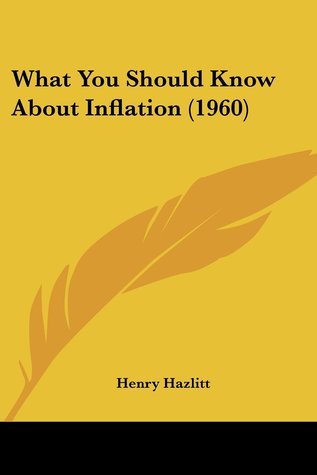What do you think?
Rate this book


152 pages, Paperback
First published January 1, 1960
Inflation, always and everywhere, is primarily caused by an increase in the supply of money and credit.The next sentence is, "In fact, inflation is the increase in the supply of money and credit." This shift is important, for the first sentence takes inflation in the commonly understood sense of "generally rising prices", but the second sentence identifies inflation as the cause of rising prices. Only by understanding the cause can we effect a cure.